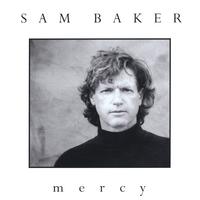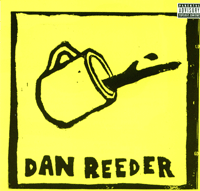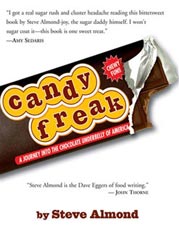Ghost World
“Once you’ve seen the Matrix, you can’t live in it anymore.”
-- Young revolutionary Jan in the German film The Edukators
I’m sitting in Donnie’s Country Kitchen (owned and operated by Asian-Americans) having pancakes and coffee. The décor reflects the Asian influence, square wood paneled walls, contemporary style polished wood tables and chairs.
The big-ass TV in the corner of the food emporium plays ESPN. They’re advertising a movie featuring a huge explosion. This is followed by a State Farm commercial with a tie-in to the animated movie “Cars.” Now, they’re back from the break and reporting on NASCAR while interviewing Owen Wilson, who is a star voice in the movie. They’re asking him the fluffiest of questions: what do you think driving a real NAS-car would be like? All he can think of is another movie, “Days of Thunder.” What’s the worst car you ever drove? He says a Nissan Maxima. What’s your dream car? He says he has a list, but at the top is some sort of Lambroghini SUV that hasn’t been produced yet.
This little vignette is a nice illustration of the totalizing, infantilizing nature of commercialization run amok. Here, on an infotainment program, we see how it all blends and flows into one big commercial. It’s a shell game and we’re mesmerized by the hands. Most of us. Unless you’ve unplugged, as I have. Or blog, as I occasionally do.
All I see now is the con, all I see is one big commercial, before, during, and after the “break.” As the host interviews Wilson, is it a commercial for Nascar, for “Cars,” for ESPN, or for benumbed consumerism? All of the above, of course. Does it lead, finally, to a commercial for America? American hegemony, bunker busters, mini-nukes, DU, the Pentagon, the CIA and the NSA? The unitary executive? How does one extricate oneself from the flow? Can you watch ESPN and not support American exceptionalism and imperialism?
So I have to ask, what is maturity in this culture? Just chasing after glitzy crap? Grab this sensation or that at the multiplex? Feel ashamed of a perfectly serviceable car?
Ghost World. I keep coming back to it. The movie “Ghost World” is the story of a young visual artist at loose ends upon graduating high school. She doesn’t have a lot of awareness of the world or herself. She’s a misfit, and she’s got the sense to be proud of it. But she’s also typically adolescent in the way her lack of understanding sometimes comes out as cruel and insensitive behavior. As with most movies, she journeys from a position of lesser to greater understanding. The movie features one of those ambiguous endings I’m partial to. It’s haunting. It’s the perfect last sentence. Enid, our protagonist, boards the mysterious bus that only one man actually believes will come by, and we watch it disappear over the horizon as the camera pulls back. What it says is: refusing to conform in this society will take you to some lonely places.
 I was waiting for a bus...
I was waiting for a bus...Here’s what I do when I’m in those places, just as I did 20 some years ago: I frequent used music and book stores, I search for the real stories from the singer songwriters or the authentic spirituality of the blues and jazz musicians, I drink my beer and smoke the occasional cigarette or joint, I read authors such as Philip K. Dick or George Pelacanos. And I still watch coming of age movies.
The other day, a friend in North Carolina was visiting. She’d just gotten a DVD player. So I offered to loan her a few from my collection. I enthusiastically pressed a handful on her: Donnie Darko, Ghost World, Orwell Rolls in His Grave, and Outfoxed. The package of four DVDs was a neat summation of my state of mind: two documentaries obliterating the media-fed lies, two movies detailing the initial struggle to come to terms those lies and their purpose, which, ultimately, I view as unthinking, mass conformity.
I looked at what I’d given her and said something like, “well, two of those are about coming of age; I guess I still find the teen years interesting.”
Teens are searchers, and they look at the world with fresh eyes. Would a teenager be so blinded, or should I say binded, as in bound, as to write the following in a
review of the movie “Cars”?
All of this takes place in a charmingly evoked town that once embraced the care and feeding of Automobilicus americanus but then lost out, when the interstate took the traffic around, rather than through.
To be small, independent and not tied to the mainstream (here embodied as an interstate set to plow unheeding through your middle) is to “lose out?” Is there only one way to make it?
So it’s no accident I refuse to let these passions o’ mine die. I mean, check it out: last week when Leigh and the girls vacated to Florida I hit a used CD shop to trade in some music. As I wandered from folk to blues to jazz, I noticed a bank of CDs with a sign indicating they could be had for a dollar. I had four dollars in hand, compensation for Pat Metheny’s “Beyond the Missouri Sky,” which I had listened to a couple times with little interest. I could afford four new CDs at this rate. I started browsing, thinking, “ha, there could be a gem in here.” Sure enough, I fished out two: Sam Baker’s
“Mercy.” And
Dan Reeder’s self-titled debut.  Small mercies
Small merciesTwo fantastic writers with quirky voices that can sing it so you can feel it. Simple, honest, unadorned music. I picked up Baker’s CD because I’d read a nice review on Buzzflash. I chose Reeder’s because it was on John Prine’s
Oh Boy Records and because both the cover and song titles appealed.
 Outta left field
Outta left fieldThere they were, masterpieces in their way, waiting for me to take them home, their price a perfect illustration of the mainstream’s estimation of their artistic merit. For me, solid gold. And a confirmation: keep searching, kid, you’ll find you’re in great company.
I gave the remaining two dollars to a young man selling peanut brittle for some youth-rescue type cause. I met him as I hoofed it across the massive strip mall parking lot heading toward “Giant Package” and its fine selection of domestic and imported beer. I went for an imported pale ale. When I got home I found that Neflix had sent over “The Edukators,” which follows the exploits of three revolutionaries who break into the estates of the super rich while they’re away and rearrange their stuff, just to shake them up. They leave notes with cryptic messages such as “Your Days of Plenty are Numbered” or “You Have Too Much Money.” They proved to be some fine drinking buddies for a lonely yet rewarding evening.







